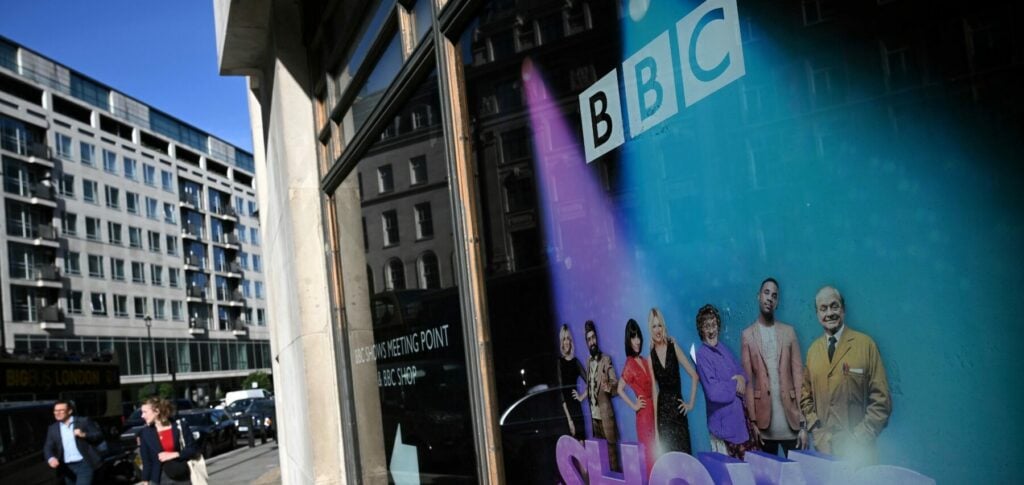For the British, “the BBC is us”, says Jean Seaton, professor of History of Communication at the University of Westminster.
ADVERTISING
“The BBC is an expression of our sense of humour, interests, values. It’s not owned by the government, it’s not owned by a private company: it’s our property,” she adds.
For almost seven million people in the UK, the day starts on Radio 4, with the influential news program “Today”. On weekends, “Strictly Come Dancing,” a television dance show, remains a hit nearly 20 years after its debut.
Veteran naturalist David Attenborough, who has been directing documentaries since the 1950s, has touted the wonders of the planet to hundreds of millions of viewers. Fiction series such as “Peaky Blinders”, “Fleabag” and “Killing Eve” are exported all over the world.
ADVERTISING
The BBC's influence goes beyond the country's borders.
The broadcaster has a worldwide audience of 492 million people each week, according to the group's 2021-2022 report. The prestigious BBC World Service broadcasts in almost 40 languages and is an important tool of British influence.
For a century, the group maintained its original triple mission: “to inform, educate and entertain”. “These values are the basis of everything we do”, explains James Stirling, who coordinates the centenary celebrations.
BBC conducts study to show what life would be like without the broadcaster
Impartiality
Another repeated word is “impartiality”, a priority for the group’s management, despite the conservative government’s criticism of the BBC.
ADVERTISING
The Executive accused the broadcaster of having covered Brexit with a hostile bias towards leaving the European Union. Overall, the government accuses the BBC of focusing on the concerns of urban elites rather than the working classes.
In January, the government of then Prime Minister Boris Johnson froze for two years the audiovisual tax (159 pounds, 180 dollars, per household) that finances the institution, a major problem for the group at a time when inflation in the United Kingdom is rising. approximately 10%. Furthermore, the Executive mentioned the possibility of abolishing the fee in the coming years.
Under budgetary pressure, the BBC announced in May a £500m-a-year savings plan, which includes cutting almost 1.000 jobs (out of almost 22.000 staff), merging some channels and broadcasting others solely via Internet.
ADVERTISING
The difficult financial context is accompanied by a flight of viewers to digital platforms, particularly young people, who thus start to questionair the audiovisual tax.
"Pride"
But new and successful formats were also created. Journalist Ros Atkins has become one of the faces of innovation with his videos that in just a few minutes present a current topic with analysis, fact checking and context.
The videos are shared on social media and receive millions of views across the planet, on the BBC website and on television.
ADVERTISING
“Millions of people follow the news on the BBC. But millions of people get their news on Twitter, Instagram, TikTok,” Atkins told AFP. And he addresses the second group with the videos: “Our audience demonstrates that this type of journalism has an audience.”
Atkins, who started working for the BBC in 2001, is aware of the group's difficulties.
“This will have an impact on everyone who works here”, he acknowledges. But the pride of being a BBC journalist remains intact for him, who believes he works “for the best press organization in the world”.
“Today” host Nick Robinson also asks questions about the future of the BBC.
“If my children's generation concludes that they don't need (the BBC), that they can have everything they want on YouTube, Sky, Netflix, then we're finished,” he told The Telegraph.
“But we deserve it if we can’t prove our added value to people,” he added.
(with AFP)



